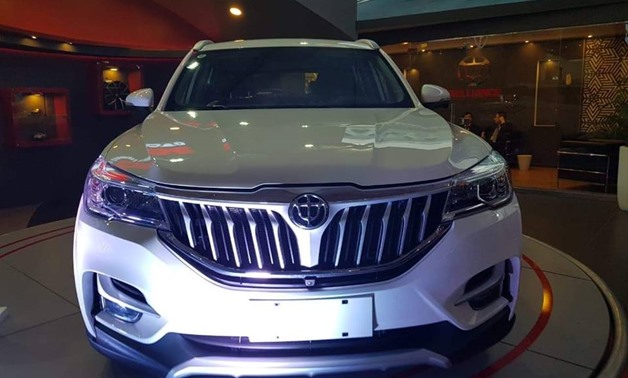
Courtesy of Brilliance Auto Egypt
CAIRO – 25 July 2019: Brilliance Auto intends to reassemble its cars in Egypt starting from the first quarter of 2020 with investments of $120 million, General Manager of Brilliance Egypt and agent of Brilliance China Khalid Saad told Enterprise.
Saad added that the company will begin temporarily manufacturing on BMW assembly lines, which is the parent company of Brilliance, until a new plant is built.
“The company is looking for a plot of land in the Suez Canal area for this purpose,” he noted.
Saad pointed out that Brilliance Egypt is preparing to launch its first electric cars by the end of 2019.
Earlier in July, Minister of Trade and Industry Amr Nassar emphasized the government's keenness to settle the automotive industry in Egypt, especially electric cars, by providing incentive programs for investment in this field, in view of the global trend to transfer to these types of cars and reduce the impact of traditional cars on the environment.
Nassar pointed out that the government aims to meet the needs of the local market of electric cars and then export to the Arab, African and European markets, benefiting from customs exemptions that result from trade agreements between Egypt and a number of countries and economic blocs around the world.
According to Saad, the company's decision to go back to local manufacturing comes after the European Association Agreement had put other brands in unfair competition, in addition to the car industry’s incentives which the Egyptian government intends to offer to attract foreign companies to return to manufacturing in Egypt.
Revisiting the GATT Agreement
The General Agreement on Tariffs and Trade (GATT) was signed between a number of countries to enhance international trade by reducing trade barriers such as tariffs or quotas. In 1995, Egypt began negotiations with the European Union for a partnership agreement. The agreement was initialed on January 26, 2001, in preparation for the final signing of the agreement which took place on June 25. After parliaments of the member states ratified the agreement, it entered into force in mid-2004.
The agreement stipulates establishing a free trade area during a transitional period of 12 years from the date of the convention entering into force. It also liberalizes the Egyptian imports of industrial goods with European origins for up to 16 years. The Egyptian-European Trade Agreement covered industrial goods, agricultural commodities and manufactured agricultural goods. Cars came in the fourth list of industrial goods imported from the European Union.
Regarding cars, Egypt started implementing the trade cooperation agreement with the European Union in 2010, so European car customs have begun to decline gradually. Egypt used the right to postpone the reduction twice in previous years. By the start of 2019, customs were reduced to hit 0 percent for all cars of all engine capacities entering from the EU. Among these are Mercedes, BMW, Audi, Volvo, Peugeot, Renault, French-origin Citroen, Fiat and Siat.

Comments
Leave a Comment